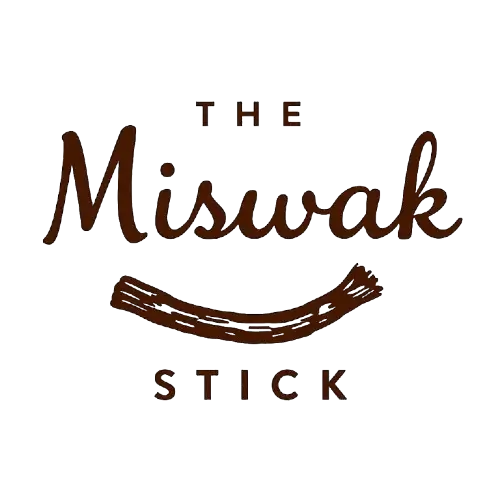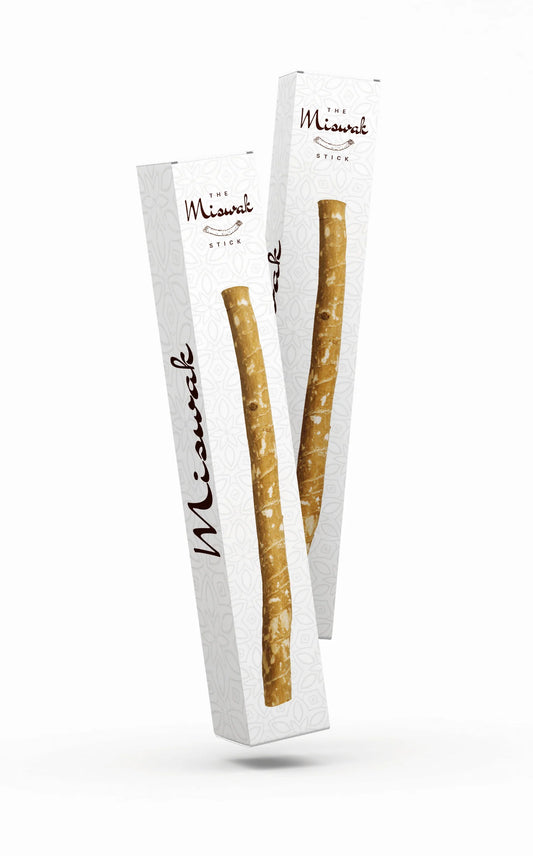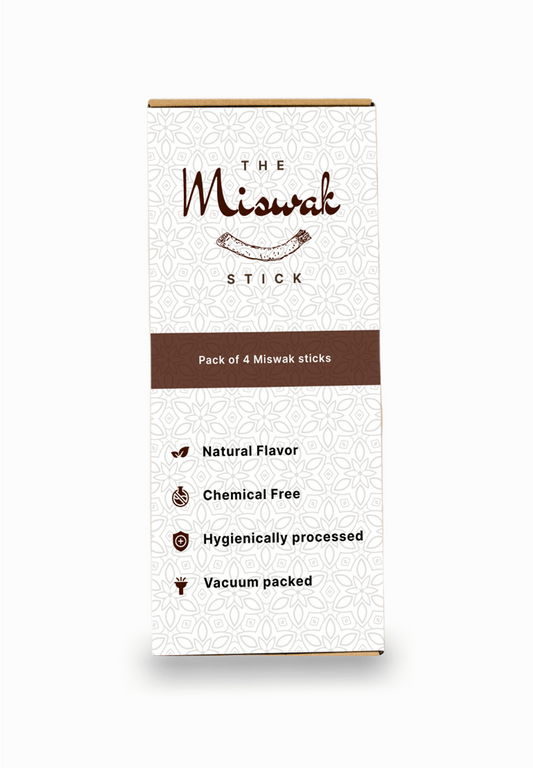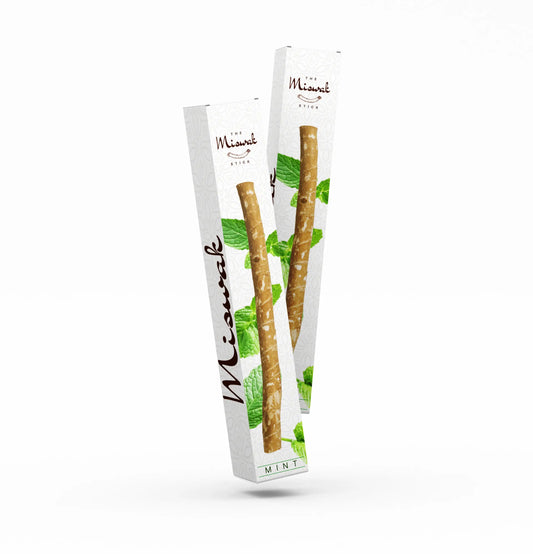What Is the Best Oral Hygiene Routine?
Maintaining proper oral hygiene is essential for healthy teeth, fresh breath, and overall well-being. Your oral hygiene routine plays a key role in preventing common dental issues such as cavities, gum disease, and bad breath. While modern dentistry often promotes toothbrushes and toothpaste, traditional alternatives like miswak sticks are gaining popularity due to their natural antibacterial properties and historical significance in oral care.
Let’s explore the best oral hygiene routine and how incorporating the best miswak stick into your daily habits can help keep your mouth clean and disease-free.
Why Oral Hygiene Matters
Oral hygiene isn’t just about a sparkling smile; it’s directly linked to your overall health. Poor oral care can lead to serious issues such as:
-
Tooth decay and cavities
-
Gum diseases like gingivitis and periodontitis
-
Bad breath (halitosis)
-
Tooth loss
-
Systemic health conditions such as heart disease, stroke, and complications during pregnancy
Research has shown that bacteria from the mouth can enter the bloodstream and impact other organs. Therefore, a proper oral hygiene routine isn’t just preventative — it's vital for whole-body health.
Signs of Poor Oral Hygiene
If you experience any of the following symptoms, it may be time to reassess your oral hygiene routine:
-
Bleeding gums
-
Chronic bad breath
-
Toothache or loose teeth
-
Gum recession
-
Persistent mouth sores
-
Jaw swelling
The Best Oral Hygiene Routine Using Miswak Sticks
A good oral hygiene routine should be easy to follow, consistent, and effective. Here's how to build a healthy daily oral care regimen — centered around the miswak stick:
1. Clean Your Teeth with a Miswak Stick Twice a Day
The miswak stick, a natural teeth-cleaning twig derived from the Salvadora persica tree, has been used for centuries for oral hygiene. Unlike synthetic toothbrushes, miswak contains natural antibacterial agents and does not require toothpaste. Here's how to use it effectively:
-
Peel 1 cm of the bark from one end.
-
Chew the tip gently until it forms bristles.
-
Use the bristled end to brush all teeth surfaces in a circular motion.
-
Rinse your mouth with water after each use.
-
Trim and refresh the tip every few days for optimal results.
Using a miswak stick not only cleans your teeth but also helps strengthen gums, prevent plaque build-up, and freshen breath — all without artificial additives.
2. Floss Once Daily
While miswak can reach between some teeth, dental floss helps remove stubborn food particles and plaque from tight spaces. Take about 18 inches of floss, wrap it around your fingers, and gently clean between each tooth. You can also use interdental brushes or dental picks if flossing is difficult.
3. Clean Your Tongue
Your tongue can harbor odor-causing bacteria. After brushing with miswak, use a tongue scraper or gently clean your tongue with the tip of the miswak stick to remove residue and bacteria buildup.
4. Use Natural Antibacterial Rinses
Instead of alcohol-based mouthwashes, opt for herbal or miswak-based rinses to complement your routine. These help reduce bacteria and keep your breath fresh without drying out your mouth.
5. Visit Your Dentist Regularly
Even with excellent at-home care using the best miswak stick, professional check-ups and cleanings every 6 months are essential. If you’re prone to cavities or gum disease, your dentist might recommend more frequent visits.
6. Avoid Smoking and Sugary Snacks
Smoking can lead to gum disease and oral cancer, while sugar contributes to tooth decay. Cut back on sugary drinks and snacks, and adopt a diet rich in vegetables, dairy, and whole foods to support your dental health.
Benefits of Good Oral Hygiene with Miswak
Incorporating miswak sticks into your daily routine can offer the following benefits:
-
Natural antibacterial protection
-
Reduced plaque and tartar
-
Improved gum health
-
Fresher breath
-
No need for toothpaste or synthetic chemicals
-
Eco-friendly and biodegradable
-
Portable and easy to use anywhere
Preventative care using traditional tools like miswak is often more affordable and sustainable than modern dental products, making it a practical choice for long-term oral health.
How Often Should You Clean Your Teeth with Miswak?
Just like a toothbrush, it's best to use miswak at least twice a day, preferably after meals. Because miswak is gentle on the enamel and gums, you can use it more frequently if desired. Make sure to refresh the tip regularly and store it in a clean, dry place.
When to See a Dentist
If it's been more than six months since your last dental visit, or you experience symptoms like tooth pain, bleeding gums, or bad breath, schedule a check-up. A dentist can assess your oral health and provide tailored advice — even if you’re using miswak sticks as your primary oral hygiene tool.
The Miswak Stick – A Natural Boost to Your Oral Hygiene Routine
In addition to modern dental products, many people are returning to ancient natural solutions like the Miswak stick for enhancing their oral hygiene. The Miswak is a traditional teeth-cleaning tool made from the Salvadora persica tree. Known for its natural antibacterial properties, the Miswak stick helps clean teeth, strengthen gums, and fight plaque—without the need for toothpaste.
Used for centuries in many cultures, the best Miswak stick is freshly harvested, chemical-free, and ideally organic. It's particularly beneficial for those looking for a fluoride-free or zero-waste option in their dental routine. While it should not completely replace brushing or flossing, incorporating Miswak sticks into your daily oral care can offer additional protection and promote a healthier, more holistic oral care routine.
Final Thought
The best oral hygiene routine combines modern techniques with consistency and natural additions like the Miswak stick. Whether you're using an electric toothbrush, flossing daily, or supplementing your regimen with the best Miswak stick, what matters most is maintaining a routine you can follow every day.




